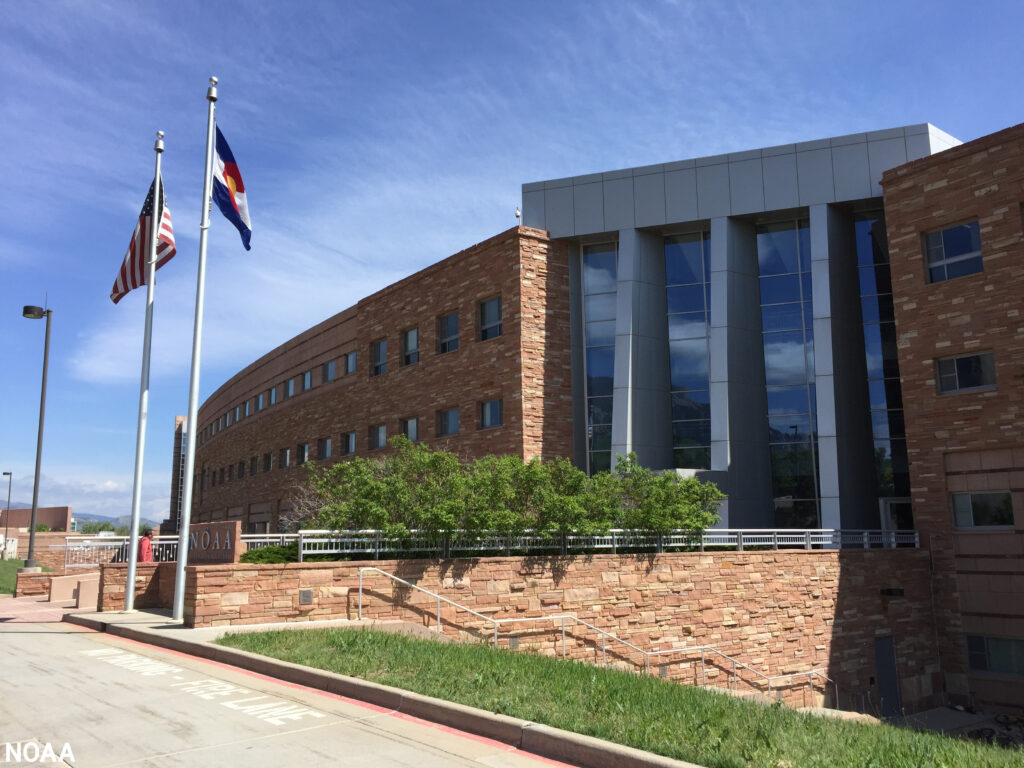The University of Colorado Boulder (CU Boulder) has been selected by NOAA to host a cooperative institute focused on Earth system research and data science.
The new Cooperative Institute for Earth System Research and Data Science (CIESRDS) will conduct collaborative research in support of NOAA’s mission to understand and predict Earth’s changing environment from the deep sea to the outer edge of the atmosphere, and to manage and conserve America’s coastal and marine resources.
Massimo Ruzzene, acting vice chancellor for research and innovation and dean of the institutes at CU Boulder, said, “We’re thrilled to continue CU Boulder’s highly productive partnership with NOAA through our joint institute. For more than half a century, CIRES has been key to our shared focus on science in service to society. This reinvestment in our partnership will advance Earth system research at a critical time, benefit our students and early-career scientists, and add new resources dedicated to data science, which is already an area of strength for CU Boulder.”
The cooperative institute will continue to assist NOAA in advancing research that improves weather and climate prediction at all scales, prioritizing work that protects lives and property while building society’s resilience to environmental change.
Specifically, the institute will support NOAA’s ongoing work in the areas of weather research and forecasting, including space weather; climate and ecosystem science, and prediction of anticipated changes in Earth’s atmosphere due to greenhouse gas pollution, air quality degradation and stratospheric ozone depletion; regional science applications; and scientific outreach, education and diversity. An additional focus will be Earth System data science, stewardship and applications.
Up to US$565.8m may be made available to fund the institute over the course of the five-year award, which runs from September 1, 2022, to August 31, 2027, with actual funding contingent upon federal appropriations. NOAA has an option to renew the agreement for another five years based on successful performance.
The institute will be administered by the University of Colorado Boulder and will build upon the successes of the Cooperative Institute for Research in Environmental Science (CIRES), which was created by NOAA and the University of Colorado in 1967.
During the 54-year collaboration, University of Colorado researchers affiliated with CIRES who worked alongside federal scientists at NOAA’s David Skaggs Research Center have made significant contributions to NOAA’s Weather-Ready Nation initiative; to climate science, adaptation and mitigation; and to the use of artificial intelligence in investigating the vast flows of Earth systems data generated by NOAA’s observation and satellite networks.
Rick Spinrad, NOAA administrator, said, “The partnership between NOAA and the University of Colorado has been as fruitful as it has been durable. We are delighted that this relationship will continue to help us answer some of our nation’s most critical scientific questions and support the development of the next generation of scientists.”



